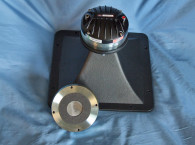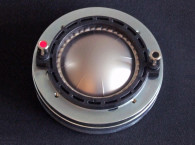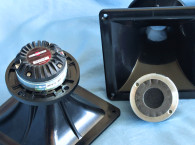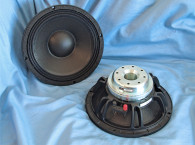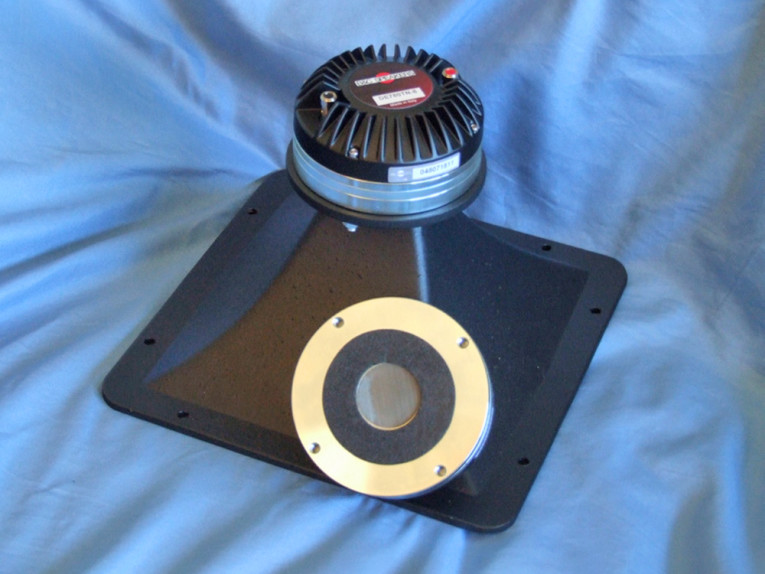
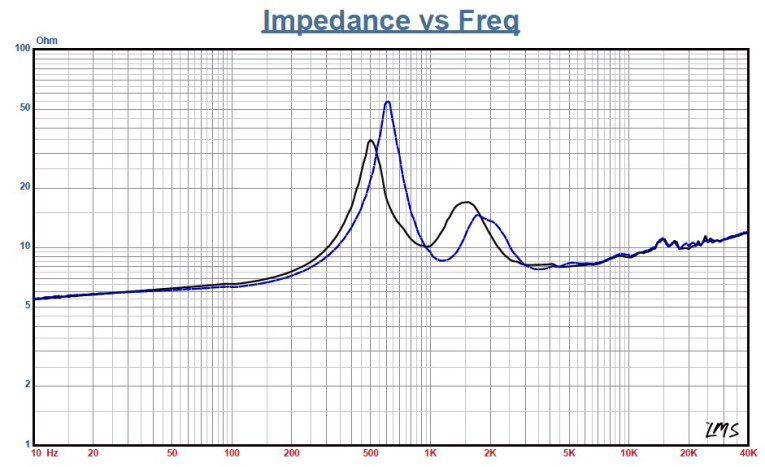
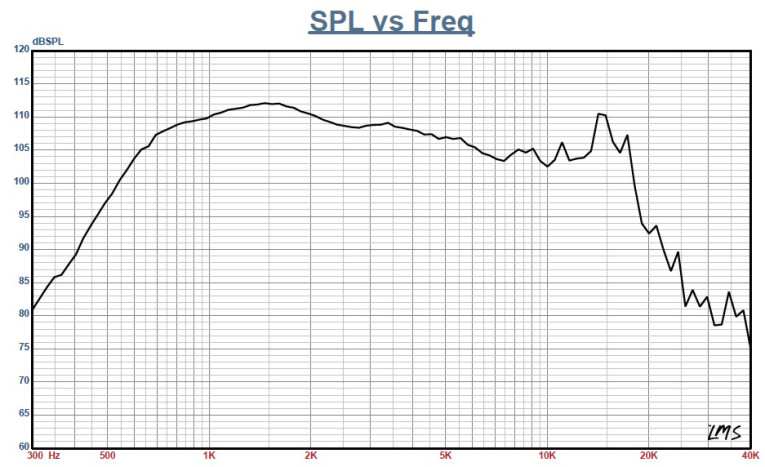
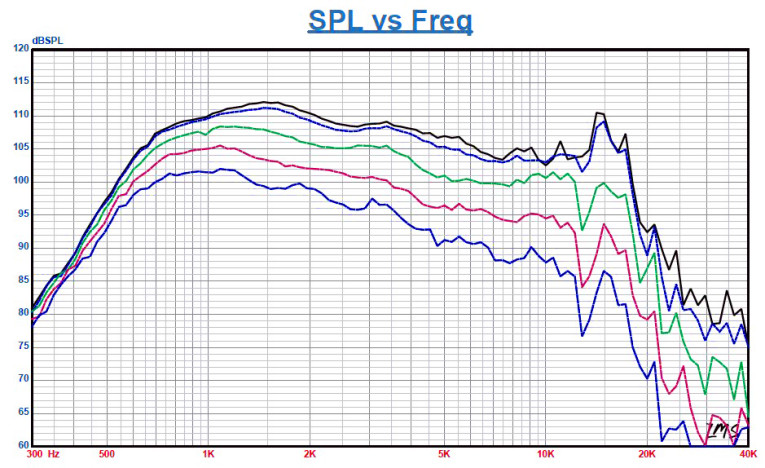
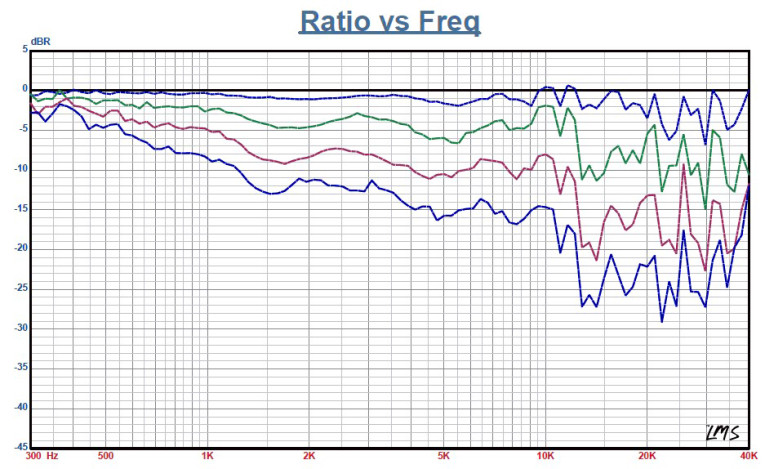
In terms of features, the B&C Speakers DE780TN-8 is designed for use with 1.4" throat horns, which means it has a 36 mm (1.4") throat diameter and a field-replaceable titanium diaphragm driven by a 75 mm (3") diameter voice coil wound with copperclad aluminum wire (CCAW) on a high Qm nonconducting former. As with the DE680TN, the DE780TN-8's titanium diaphragm has been redesigned and incorporates a new bent edge former along with a new dome and surround geometry.
Other features include a neodymium ring magnet motor, a nominal 110W-rated power handling (220 W continuous), a 1.2 kHz recommended crossover frequency (second-order or higher high-pass filter), and 2.83 V/1 m 108 dB sensitivity. B&C Speakers supplied the ME90 horn for use with the DE780TN-8. This constant directivity horn has a 1.4" exit bolton type made from cast aluminum, and provides an 80° × 60° coverage pattern and a 900 Hz cut-off frequency.
I used the LinearX LMS analyzer to produce the 300-point stepped sine wave impedance plot shown in Figure 1, with the solid black curve representing the DE780TN-8 mounted on the ME90 horn and the dashed blue curve representing the compression driver without the horn. With a 5.96 Ω DCR (Re), the minimum impedance of the DE780TN-8/ME90 was 6.835 Ω and at 4.60 kHz.
For the next set of SPL measurements, I free-air mounted the DE780TN-8/ME90 combination without an enclosure and measured both the horizontal and vertical on and off axis at 2.83 V/1 m, again using the LMS gated sine wave sweeps to produce both horizontal and vertical plane SPL data from 0° on-axis to 60° off-axis.
Figure 2 illustrates the DE780TN-8/ME90 combination's on-axis frequency response, which is smooth with no major anomalies with a declining response as frequency increases above 1.5 kHz, and extending to about 17 kHz, requiring the usual constant directivity horn equalization. Figure 3 depicts the on- and off-axis response in the horizontal plane. Figure 4 displays the normalized horizontal plane response. Figure 5 shows the CLIO Pocket analyzer-generated 180° horizontal polar plot (in 10° increments with1/3 octave smoothing applied).
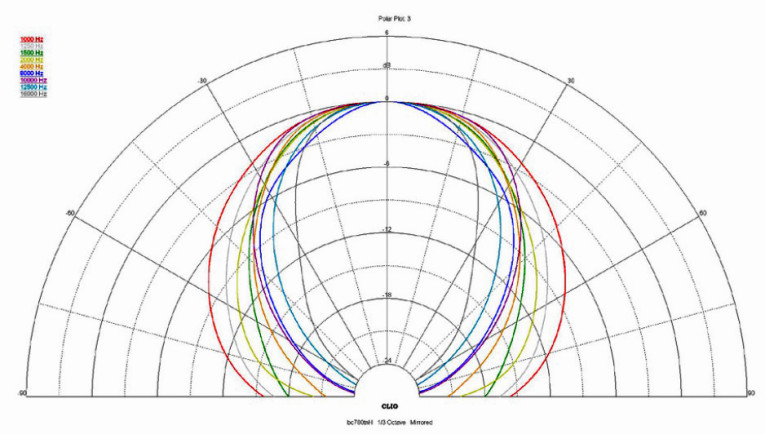
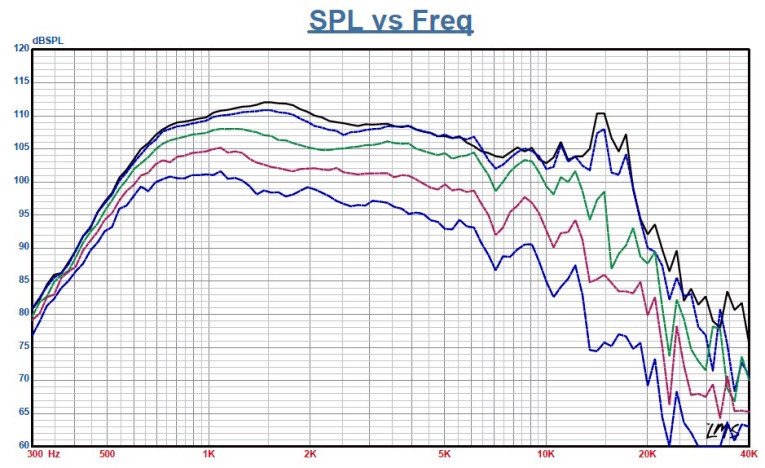

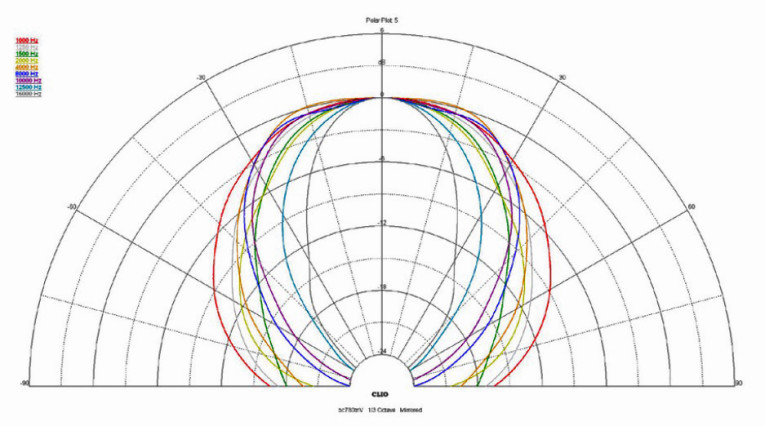
Figure 6 gives the on and off axis to 60° response in the vertical plane. Figure 7 depicts the normalized vertical plane response. Figure 8 shows the CLIO Pocket-generated vertical plane polar plot (in 10° increments with 1/3 octave smoothing applied). Last, Figure 9 illustrates the two-sample SPL comparison showing the two B&C DE780TN-8 compression driver samples to be very closely matched within less than 0.5 dB throughout the operating range above 2 kHz. I again set up the Listen AudioConnect analyzer, the SoundCheck 16 software, and the Listen 1/4" SCM microphone to measure distortion and generate time-frequency plots. For the distortion measurements, I mounted the DE780TN-8/ME90 combination in free-air in the same manner as was used for the frequency response measurements, and set the SPL to 104 dB at 1 m (2.22 V determined by using a pink noise stimulus generator and the internal SLM found in the SoundCheck 16 software). Then, I measured the distortion with the Listen 1/4" measurement microphone located 10 cm from the mouth of the horn. This produced the distortion curves shown in Figure 10 (red curve = second harmonic, blue curve = third harmonic).
Next, I set up SoundCheck 16 software to generate a 2.83 V/1 m impulse response for the DE780TN-8/ME90 combination and imported the data into Listen’s SoundMap Time/Frequency software. Figure 11 shows the resulting CSD waterfall plot. Figure 12 shows the STFT plot.
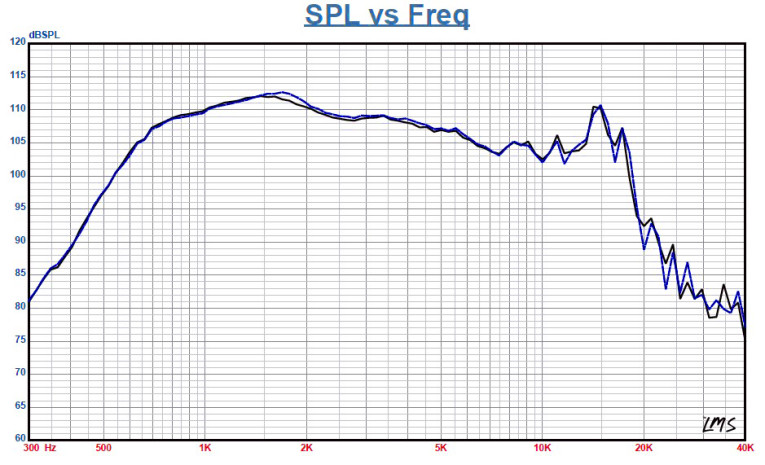
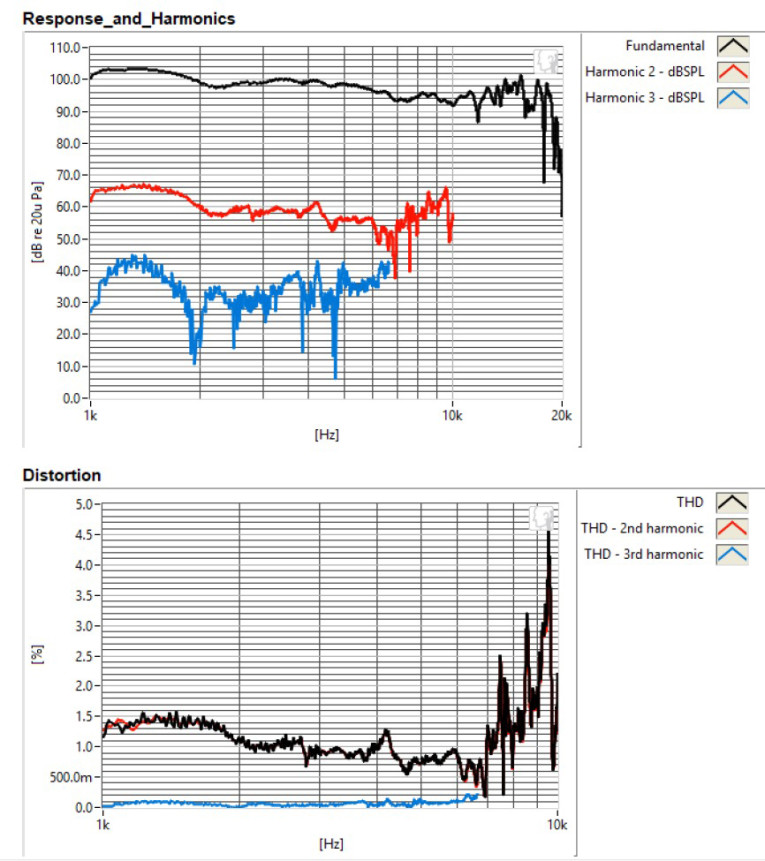
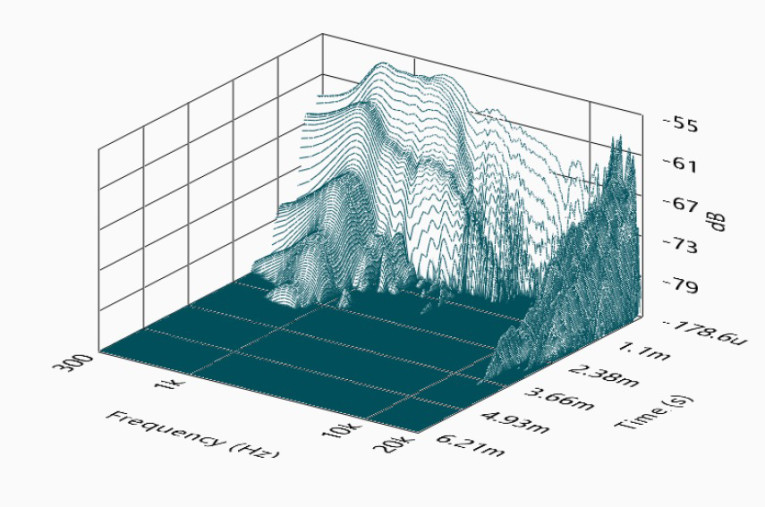
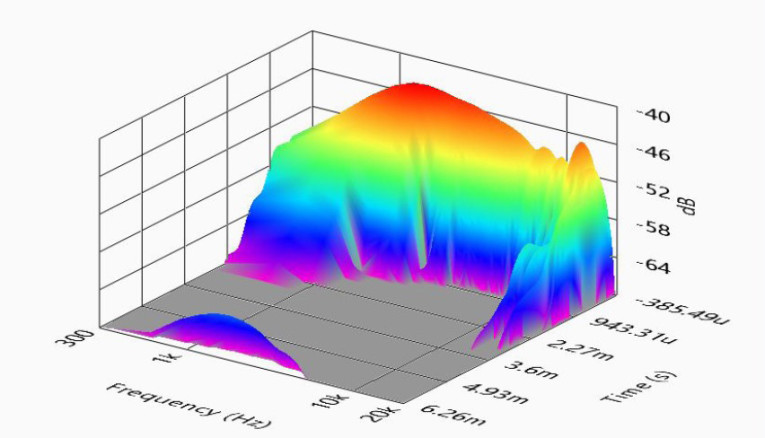
From the above measurements, the DE780TN-8 displays excellent performance for a compact (can be stacked closely in arrays) and a robust high power handling package, certainly another important addition to B&C Speakers’ extensive lineup of ferrite and neodymium motor compression drivers. For more information, contact B&C Speakers N.A., National U.S. Sales Office, 220 W. Parkway, Unit 11, Pompton Plains, NJ 07444, phone (973) 248-0955, Fax (973) 248-0956, e-mail Bennett Prescott, or visit www.bcspeakers.com. VC
This article was originally published in Voice Coil, August 2018.




